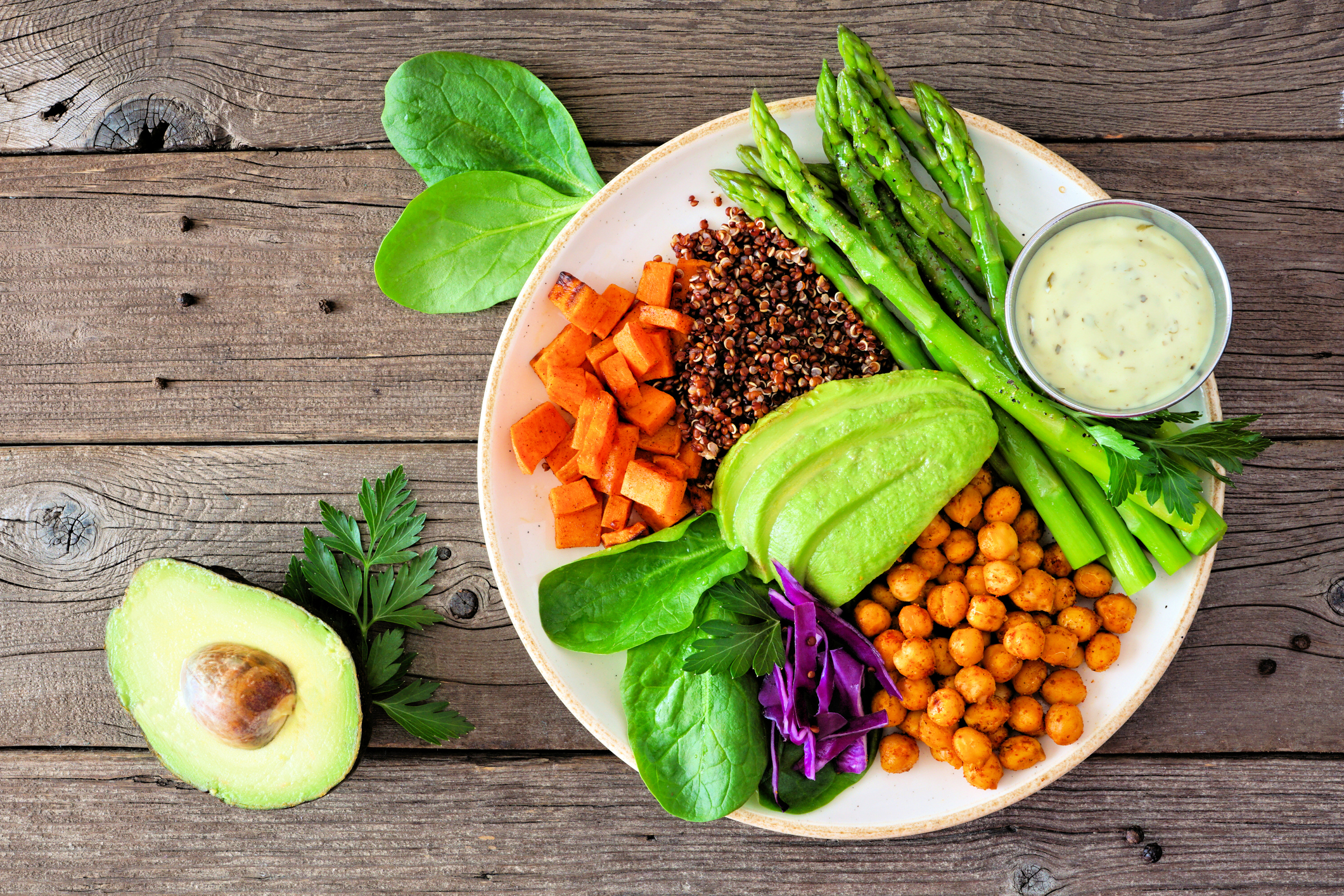There are plenty of diets and weight loss plans that are creating a buzz these days, one of which is the hormone diet, or hormone reset diet. It’s gaining popularity with women who are experiencing trouble losing weight as a result of getting older or who are approaching/going through menopause.
It’s no secret that hormone levels change as you get older, which can have a variety of different effects on the body. From weight gain to fatigue to mood changes, sleep problems, and digestive issues, hormone imbalance definitely has some unpleasant symptoms.
But can following a special diet plan really be the key to balancing out hormone levels?
How Diet Affects Hormones
Eating a well-balanced diet is essential for keeping hormones in check. Particularly for women who are going through menopause, diet can have a significant influence on hormones. The main hormones that can be thrown out of whack are estrogen, insulin, glucagon, and cortisol.
These hormones act as chemical messengers for the body and control reproduction, your immune system, and of course, your metabolism. When levels of these hormones drop or soar too high, that’s when unwelcome symptoms present themselves.
What Is the Hormone Diet?
The hormone diet was introduced by Dr. Natasha Turner, who is a Naturopathic Doctor and author of the book, The Hormone Diet. Dr. Turner believes that restoring hormone balance in the body can be achieved by making specific lifestyle changes and that adopting new habits can boost the hormones that are responsible for burning fat in the body and contributing to weight loss.
How to Follow the Hormone Diet
The hormone diet plan lasts for 6 weeks and involves a 3-Phase process to getting hormones back in check. It not only tells you what to eat and what foods to avoid, but it gives certain times for eating that are most beneficial to hormones as well.
Phase 1 – This phase lasts for 2 weeks and is basically an elimination diet. Foods that are taken out of the diet are gluten, sugar, alcohol, cow’s milk, red meat, artificial sweeteners, peanuts, citrus fruits, and oils. Supplements like probiotics and fish oil are also taken during this period.
Phase 2 – This phase advises you to continue to avoid processed foods, grains, sugars, and other foods that hinder hormones. But it also allows you to start introducing some of the foods eliminated in Phase 1 back into your diet to see how you respond to them.
Phase 3 – The last phase of the plan follows the same food rules as Phase 2, but it also brings in cardio exercise and strength training to continue to encourage healthy lifestyle habits that support optimal hormone balance.
Using Nutrition to Balance Hormones
If you want to balance your hormones without adhering to a set, detailed plan, there are other ways that you can use nutrition to stabilize hormone levels.
There are certain foods you can eat that may help stabilize hormones, and there are also foods you should avoid if you have an imbalance in hormones happening.
Foods that balance hormones:
- Cruciferous vegetables such as broccoli and cauliflower help the liver metabolize estrogen.
- Foods high in Omega-3’s, like salmon, olive oil, and walnuts help create estrogen and testosterone and also regulate hunger hormones.
- Avocados help balance cortisol levels.
- Organic fruits and vegetables are safer than conventional because they don’t contain pesticides. Pesticides are endocrine disruptors and affect hormone levels.
- High-fiber carbohydrates such as whole grains help to eliminate excess hormones from your system.
Foods that alter hormone levels:
- Processed Food
- Refined Sugars
- Alcohol
- Artificial Sweeteners
- Fried Foods
In Conclusion
Whether you’re interested in following the hormone diet or incorporating hormone-balancing foods to conquer your own health issues or you’re just looking for a way to eat a cleaner, healthier diet, learning about the plan is a good place to start when you’re weighing your options. It’s always important to do your research and follow a lifestyle that works for you and your specific needs.
Have you had any experience with the hormone diet or using food to balance hormones? Let us know in the comments!
Want to dive even deeper into the topic of hormones? Through our Passion-Based Learning approach at ITN, when you enroll in our Certified Transformational Nutrition Coach program, you’ll also be able to take a specialist course of your choice, one of which is a Certified Hormone Specialist course. See more details about our program here!


When we think about what to eat to nourish our bodies, hormones may not always be top of mind. But after reading this, I realize that our hormones play a very important role in our bodies.
Absolutely! Some people might not be able to keep up with a schedule of eating in intervals and constantly paying attention to their hormones. Having hormones tested is a complicated process that requires visits to the doctor, blood draws, and saliva tests. It costs both money and time. Thank you so much for sharing!